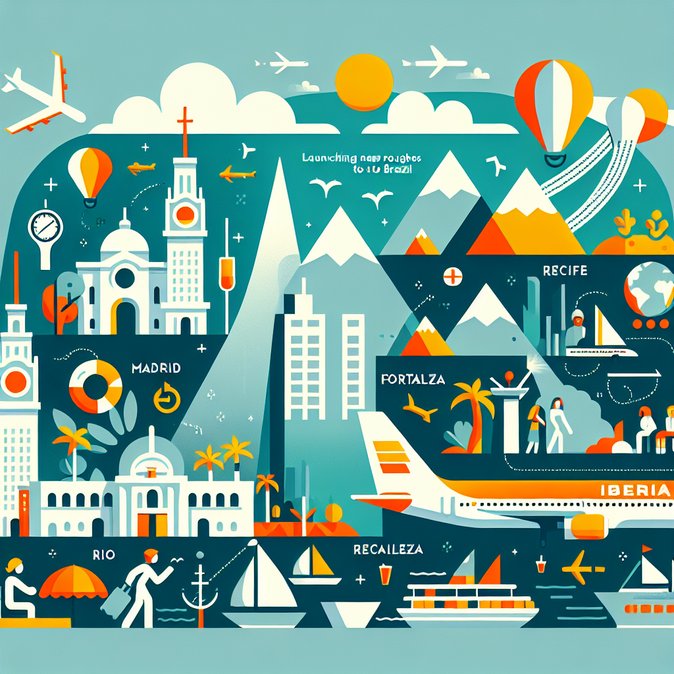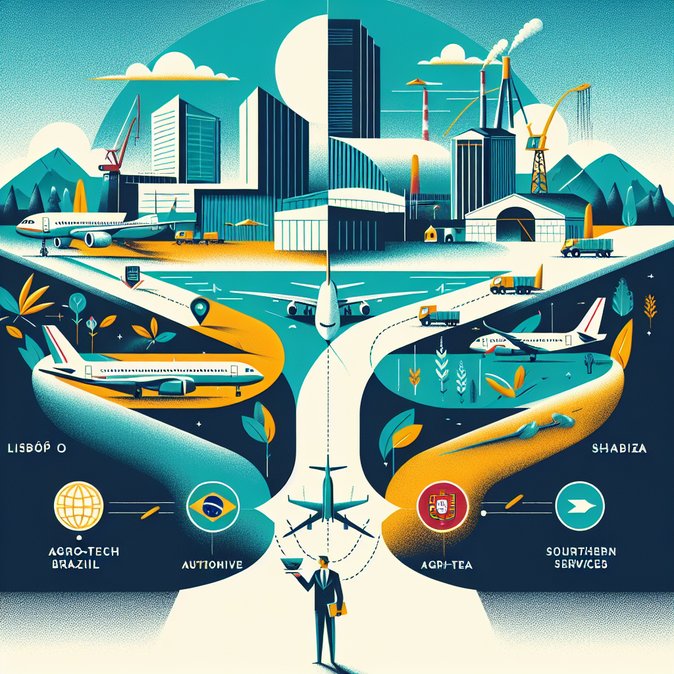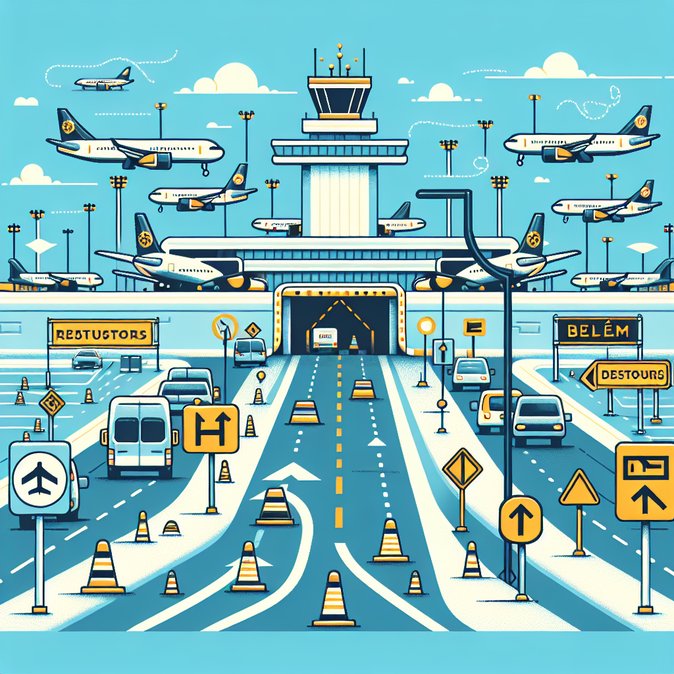
Spanish flag-carrier Iberia has unveiled the next phase of its Latin-American growth strategy, confirming that it will double the number of Brazilian gateways it serves and lift overall capacity to the country by about one-quarter in the first half of 2026. According to an interview with chief executive Marco Sansavini, the Oneworld member will inaugurate year-round Madrid–Recife flights on 13 December 2025 and Madrid–Fortaleza on 19 January 2026, each thrice weekly. At the same time, the airline will increase Madrid–Rio de Janeiro frequencies from five a week to daily and maintain twice-daily service to São Paulo. Altogether the changes will add roughly 72 000 seats during the January–June window, bringing Iberia’s offer to 365 000 seats — up 25 % versus 2025 and 54 % above pre-pandemic levels.
Iberia will deploy a mix of Airbus A350-900s on the high-demand Rio and São Paulo routes and newly-delivered long-range A321XLR narrow-bodies on Fortaleza and Recife. The XLR’s lower trip costs and smaller gauge allow year-round operation on secondary city-pairs that were previously considered marginal. Executives say the type burns 30 % less fuel per seat than the A330-200s it replaces while offering flat-bed seats in Business and full connectivity in all cabins.
![Iberia adds Fortaleza and Recife, lifting Brazil capacity 25 % in 2026]()
For corporate mobility managers, the move is more than an airline headline: Recife and Fortaleza host growing clusters in renewables, agritech and shared-services outsourcing. Non-stop links to Europe reduce travel time by four to six hours compared with one-stop itineraries via São Paulo, cutting traveller fatigue and duty-of-care exposure. Iberia’s codeshares with LATAM and an interline pact with Gol extend same-day connections to 50 domestic destinations, which should make the carrier a stronger competitor for European contracts now dominated by Air France-KLM and TAP.
Brazilian authorities also welcome the additional capacity. International air traffic in Brazil jumped 18 % year-on-year between January and September 2025 despite a strong real and high airport charges. The Ministry of Ports and Airports predicts the country will surpass its 2019 record of 17.9 million foreign arrivals next year, provided airlines keep adding seats to secondary cities.
Travel buyers should watch Iberia’s impending membership in the NDC Exchange, slated for Q1 2026. That will enable dynamic bundles that combine corporate fares with onward LATAM sectors, airport transfers and even pre-cleared visa facilitation — a perk that could resonate with companies rotating technicians on short-term assignments made easier by Brazil’s expanded Visit Visa rules. In the meantime, seat maps for the new flights opened on 14 November, and early-bird business-class fares are pricing about 12 % below TAP’s northeast-Brazil services.
Iberia will deploy a mix of Airbus A350-900s on the high-demand Rio and São Paulo routes and newly-delivered long-range A321XLR narrow-bodies on Fortaleza and Recife. The XLR’s lower trip costs and smaller gauge allow year-round operation on secondary city-pairs that were previously considered marginal. Executives say the type burns 30 % less fuel per seat than the A330-200s it replaces while offering flat-bed seats in Business and full connectivity in all cabins.

For corporate mobility managers, the move is more than an airline headline: Recife and Fortaleza host growing clusters in renewables, agritech and shared-services outsourcing. Non-stop links to Europe reduce travel time by four to six hours compared with one-stop itineraries via São Paulo, cutting traveller fatigue and duty-of-care exposure. Iberia’s codeshares with LATAM and an interline pact with Gol extend same-day connections to 50 domestic destinations, which should make the carrier a stronger competitor for European contracts now dominated by Air France-KLM and TAP.
Brazilian authorities also welcome the additional capacity. International air traffic in Brazil jumped 18 % year-on-year between January and September 2025 despite a strong real and high airport charges. The Ministry of Ports and Airports predicts the country will surpass its 2019 record of 17.9 million foreign arrivals next year, provided airlines keep adding seats to secondary cities.
Travel buyers should watch Iberia’s impending membership in the NDC Exchange, slated for Q1 2026. That will enable dynamic bundles that combine corporate fares with onward LATAM sectors, airport transfers and even pre-cleared visa facilitation — a perk that could resonate with companies rotating technicians on short-term assignments made easier by Brazil’s expanded Visit Visa rules. In the meantime, seat maps for the new flights opened on 14 November, and early-bird business-class fares are pricing about 12 % below TAP’s northeast-Brazil services.


